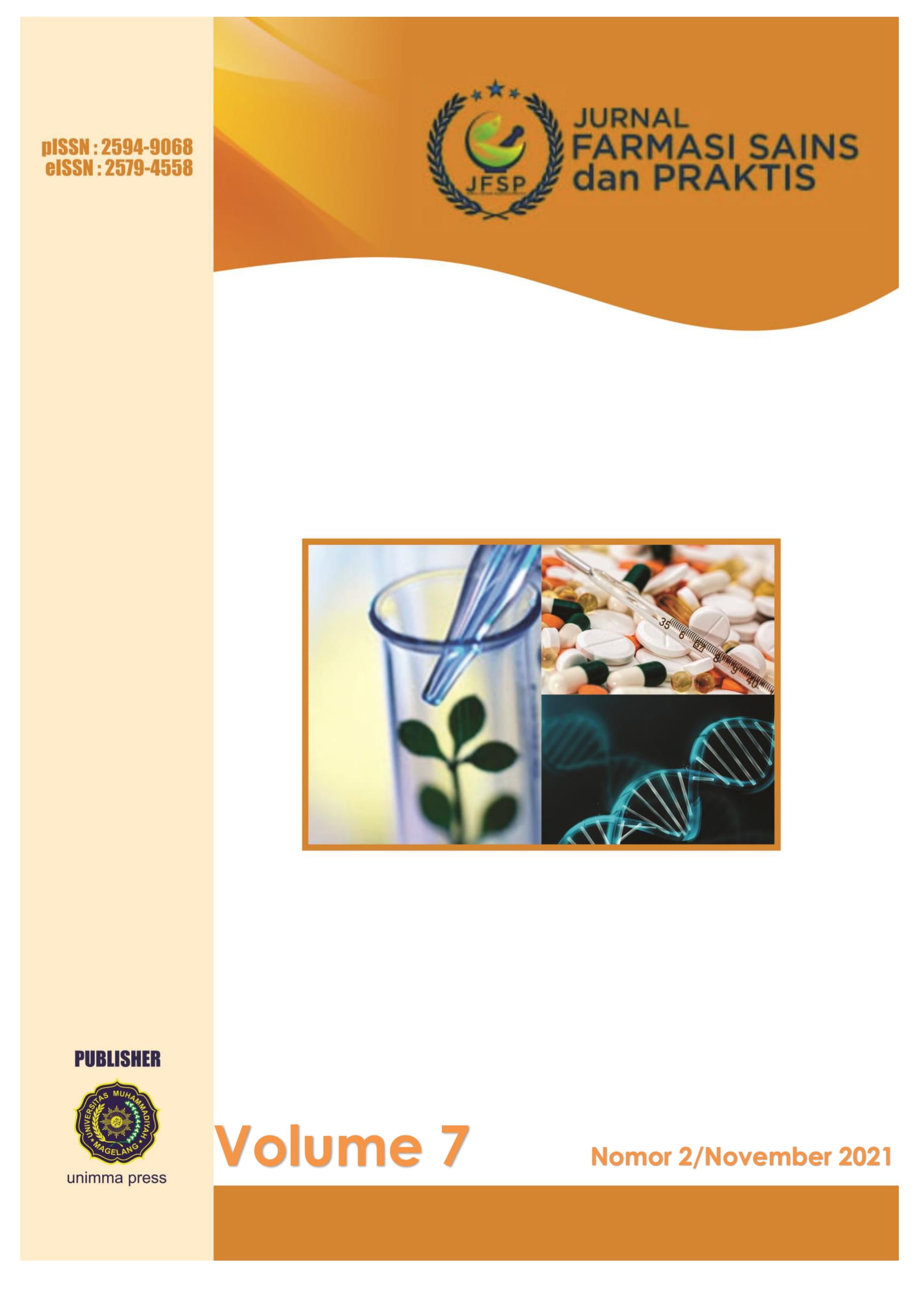Main Article Content
Abstract
Inappropriate use of oral antibiotics will contribute to an increase in antibiotic resistance and treatment failure. Compliance with the use of oral antibiotics is one of the things that contributes to the inappropriate use of antibiotics. This study aims to analyze the effect of information booklet reminder media on adherence to short-term antibiotic use conducted in four puskesmas in the Surabaya area. Patients aged 19-50 years who were prescribed short-term antibiotics (<7 days) were included in this study. Patients were then grouped into two groups, namely the intervention group who was given an information booklet, and the control group. Compliance with the use of antibiotics was measured based on the calculation of the remaining antibiotics on the day the antibiotics ran out. A total of 192 people were recruited in this study, 96 people were in the intervention group and 96 people were in the control group. The results of measurement of adherence and analysis showed that 80.21% of patients in the intervention group were obedient in using their antibiotics, while patients in the control group were compliant with 60.42% (p-value 0.003). Based on these results, information booklets can significantly affect patient compliance in the use of short-term oral antibiotics so that information booklets can be used as one of the educational media in increasing adherence to antibiotic use.
Keywords
Article Details

This work is licensed under a Creative Commons Attribution-NonCommercial 4.0 International License.
References
- Akhavan, B. J., Khanna, N. R., & Vijhani, P. (2021). Amoxicillin. In StatPearls. StatPearls Publishing. http://www.ncbi.nlm.nih.gov/books/NBK482250/
- Chem, E. D., Anong, D. N., & Akoachere, J.-F. K. T. (2018). Prescribing patterns and associated factors of antibiotic prescription in primary health care facilities of Kumbo East and Kumbo West Health Districts, North West Cameroon. PLOS ONE, 13(3), e0193353. https://doi.org/10.1371/journal.pone.0193353
- Hassan Hussein, A., Mamdouh Mostafa, N., & Abdo Thabet, M. (2021). Effect of Teaching Booklet on Compliance to Oral Anticoagulant Drugs among Patients with Deep Venous Thrombosis. Egyptian Journal of Health Care, 12(1), 869–880. https://doi.org/10.21608/ejhc.2021.159846
- Khoiriyyah, A., & Ediati, A. (2015). Pengaruh Buku Harian untuk Meningkatkan Kepatuhan pada Pasien Hipertensi: Studi Kuasi Eksperimen pada Pasien Hipertensi. Jurnal Empati, 4(1), 35–42.
- Li, S.-C. (2008). Factors affecting therapeutic compliance: A review from the patient’s perspective. Therapeutics and Clinical Risk Management, Volume 4, 269–286. https://doi.org/10.2147/TCRM.S1458
- Llor, C., & Bjerrum, L. (2014). Antimicrobial resistance: Risk associated with antibiotic overuse and initiatives to reduce the problem. Therapeutic Advances in Drug Safety, 5(6), 229–241. https://doi.org/10.1177/2042098614554919
- Marengo, M. F., & Suarez-Almazor, M. E. (2015). Improving treatment adherence in patients with rheumatoid arthritis: What are the options? International Journal of Clinical Rheumatology, 10(5), 345–356. https://doi.org/10.2217/ijr.15.39
- Muljabar, S. M., & Supadmi, W. (2014). Pengaruh Pemberian Informasi Obat terhadap Tingkat Kepatuhan Penggunaan Antibiotika pada Pasien ISPA di Puskesmas Kotagede I Yogyakarta. Pharmaciana, 4(2), 143–149. https://doi.org/10.12928/pharmaciana.v4i2.1571
- Naibobe, D. M. G., & Rengga, M. P. E. (2020). Pengaruh Pemberian Konseling Terhadap Kepatuhan Penggunaan Antibiotik pada Pasien Infeksi Saluran Pernapasan Akut di Puskesmas Sikumana. 3(2), 133–137.
- Presetiawati, I., Andrajati, R., & Sauriasari, R. (2017). Effectiveness Of A Medication Booklet And Counseling On Treatment Adherence In Type 2 Diabetes Mellitus Patients. International Journal of Applied Pharmaceutics, 9, 28. https://doi.org/10.22159/ijap.2017.v9s1.24_29
- Pristianty, L., Kurniati, V. L., & Hidayati, I. R. (2020). Knowledge and attitude: Two fundamental factors that determine patient compliance in antibiotic therapy. Journal of Basic and Clinical Physiology and Pharmacology, 30(6). https://doi.org/10.1515/jbcpp-2019-0321
- Sammulia, S. F., Rahmawati, F., & Andayani, T. M. (2016). Perbandingan Pill Box dan Medication Chart dalam Meningkatkan Kepatuhan dan Outcome Klinik Geriatri Kota Batam. Jurnal Manajemen Dan Pelayanan Farmasi (Journal of Management and Pharmacy Practice), 6(4), 288. https://doi.org/10.22146/jmpf.358
- Tong, S., Pan, J., Lu, S., & Tang, J. (2018). Patient compliance with antimicrobial drugs: A Chinese survey. American Journal of Infection Control, 46(4), e25–e29. https://doi.org/10.1016/j.ajic.2018.01.008
- Wattiheluw, M. H., Herawati, F., Setiasih, S., & Yulia, R. (2020). Correlation of Knowledge and Beliefs to Adherence with Antibiotic Use in Adult Patients at a Private Hospital in Sidoarjo. Kesmas: National Public Health Journal, 15(2), 99–104. https://doi.org/10.21109/kesmas.v15i2.2409
- Wibowo, R., & Soedibyo, S. (2016). Kepatuhan Berobat dengan Antibiotik Jangka Pendek di Poliklinik Umum Departemen Ilmu Kesehatan Anak Rumah Sakit Dr. Cipto Mangunkusumo, Jakarta. Sari Pediatri, 10(3), 171. https://doi.org/10.14238/sp10.3.2008.171-6
